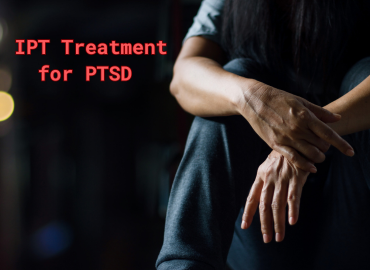IPT Treatment for PTSD
IPT stands for Interpersonal Psychotherapy. It is a type of psychotherapy that focuses on helping patients improve their relationships along with improving their mental health and inner life.
IPT focuses on the present as much as possible and is supported by multiple studies to be effective at treating major depressive disorder (MDD) and other depressive disorders.
The patient and their therapist work together to accomplish these objectives:
− Improve their ability to make new relationships
− Understand how their feelings translate into their behavior
− Understand how their feelings and behavior affect their relationships
− Solve any current interpersonal conflicts
− Discover and use support systems in their personal lives and in their community
During treatment, specific strategies are used to address the patient’s problems in their relationships. These four categories are:
− Complicated bereavement, in which the patient learns to mourn in non-destructive ways − Role transition, in which the patient deals with the loss of an old role and learns how best to assume their new role
− Role dispute, in which the patient gets help in resolving an interpersonal conflict − Interpersonal deficits, in which the patient learns how to improve their social life and avoid isolation or destructive relationship dynamics
IPT can be beneficial for people suffering from post-traumatic stress disorder (PTSD), as PTSD affects everyone around the sufferer. Take a look at our article on PTSD at this link. IPT is a targeted treatment to improve the patient’s unique relationships. It addresses the unique problems each patient faces while being based on tried-and-true principles of psychotherapy. Some of these principles are:
− Rapport with the therapist that makes for a solid alliance
− An environment that makes the patient feel understood and supported
− A solid, actionable treatment plan
IPT is a time-limited treatment that (ideally) takes place over 12 to 16 weeks. There is a beginning phase over one to three sessions, an intermediate phase of indeterminate length, and a conclusive phase over 3 sessions. During the initial stages of treatment, inventory is taken to ascertain any patterns in the patient’s relationships and the dynamics present in those relationships.
Psychotherapy is one of the many services we offer at Rochester Holistic Psychiatry. We treat many patients suffering from MDD, PTSD, and other depressive and anxiety disorders. Everyone deserves help to have a better quality of life and healthy relationships. For more information, write to us anytime on our website or call (585) 442-6960.




